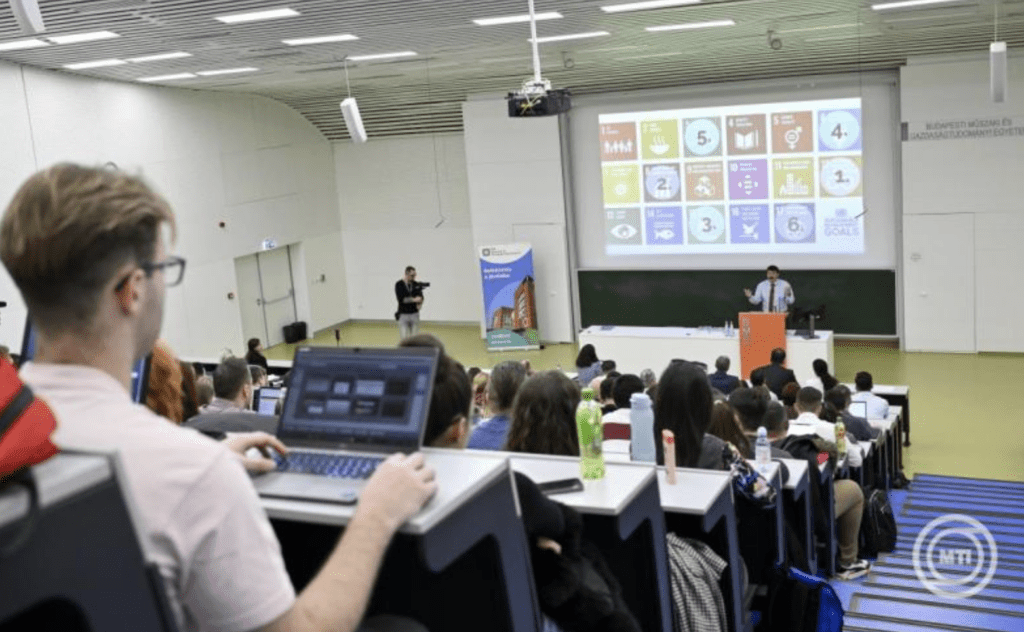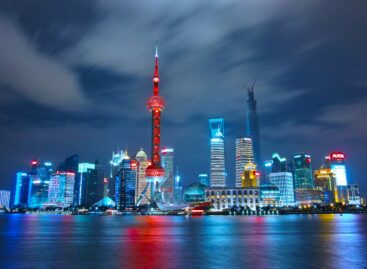The sustainability expo will be held again in Budapest next year
The Planet Budapest sustainability expo will be held for the third time from February 25, 2026, with accompanying programs awaiting visitors for a month in the Railway History Park – said János Áder, chairman of the board of trustees of the Blue Planet Climate Protection Foundation on Friday in Budapest.

The former president of the republic added that part of the event will be aimed at primary and secondary school students, but part of it will also be a classic expo, where only Hungarian entrepreneurs are welcome. The aim of the expo is to enable Hungarian entrepreneurs to present their products and services related to sustainability.
János Áder, at the Budapest University of Technology and Economics, Where is the world heading? What can we do? In his sustainability lecture titled, he presented the differences between traditional and so-called sustainable development economics.
He considered this important because while traditional economic thinking measures economic growth exclusively in GDP, representatives of sustainable development economics also take into account the social, economic, health and environmental impacts of economic activities.
In connection with this, he indicated that in Hungary the Hungarian Academy of Sciences, the Macronomic Institute and Hétfa have already created a new methodology that measures human, social and environmental changes in addition to economic activity.
In addition, he drew attention to the differences between the linear and circular economic models. While the former process is covered by raw material extraction, processing, transportation, consumption and waste generation, the essence of the latter is that there is no overconsumption as much as possible, and waste is collected because it is not considered garbage, but rather a recyclable raw material.
János Áder also involved the audience in his interactive presentation, who could answer the questions appearing on the projector using their mobile phones. Thus, the former President of the Republic addressed the audience with questions such as, for example, what proportion of the world’s total GDP depends directly or indirectly on natural ecosystem services. Here, 55 percent was the correct solution.
In his response, János Áder presented ecosystem services in detail. These include the so-called provisioning services, such as food, raw materials, and drinking water. There are also regulatory services that play an important role in regulating air quality and climate, but this also includes the regulation of the water cycle and pollination.
The former head of state highlighted that industries that are highly dependent on nature account for 15 percent of global GDP, while industries that are more moderately dependent on nature account for 37 percent of global GDP.
In his presentation, János Áder also placed great emphasis on the state of soil, water and air.
He said that the price of a hectare of land in Hungary is approximately 2.4 million forints, but this does not express its value. The diversity of living organisms in the soil largely determines the subsequent economic activity on a given piece of land. It is important to know that soil has a much broader role than “providing us with food”. Soil also plays a role in water purification, climate regulation, nutrient cycling, and carbon sequestration. This needs to be clarified because the soil is being degraded as a result of improper land use, said János Áder, adding that according to a UN survey, one-third of the world’s agricultural or forestry areas have now become of poor quality.
Regarding water, he indicated that Hungary is still among the countries with abundant water, but more than 30 countries in the world are already suffering from severe water shortages, which also means that the available water per person per year is less than 500 cubic meters. Water stress lies between the two, which shows that there are areas where the amount of water available per person per year ranges between 1,000 and 1,700 cubic meters. János Áder believed that water stress affects not only the population but also agricultural and industrial activities.
Related news
ESG: the majority don’t ask for postponement, preparedness level is increasing
🎧 Hallgasd a cikket: Lejátszás Szünet Folytatás Leállítás Nyelv: Auto…
Read more >Related news
Hétéves növekedési stratégiát jelentett be az Auchan
🎧 Hallgasd a cikket: Lejátszás Szünet Folytatás Leállítás Nyelv: Auto…
Read more >(HU) METRO Gasztro Fesztivál a SIRHA Budapesten – Élmény, inspiráció és valódi megoldások a HoReCa-szakmának
🎧 Hallgasd a cikket: Lejátszás Szünet Folytatás Leállítás Nyelv: Auto…
Read more >Fidelity: What awaits China in the Year of the Horse?
🎧 Hallgasd a cikket: Lejátszás Szünet Folytatás Leállítás Nyelv: Auto…
Read more >









